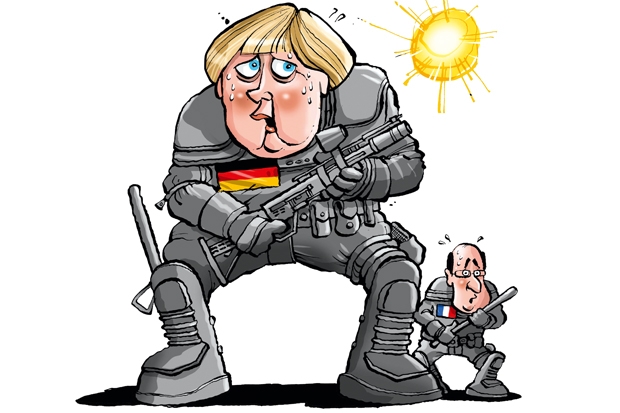Whilst Haras Rafiq says that the approach to tackling terrorism in Europe has been wrongheaded and needs to change:‘One of the most interesting things was when the French Prime Minister said after Nice that France might have to get used to terrorism. A lot of people reacted very badly to that statement. I thought it was in some ways refreshingly frank because Manuel Valls is not wrong. Although you can limit the ability of terrorists to get hold of Kalashnikovs and explosives, it is extremely hard to limit people’s access to knives and trucks. So you do have to warn the public.’
In the US, the Republicans swore in Donald Trump as their candidate last week. But in a Presidential race that shows no signs of slowing down, the Democratic party was rocked by the leak of 20,000 private emails which appeared to undermine the Democrats’ process for selecting their candidate: Hillary Clinton. So were the Russian hackers believed to be responsible for the hack doing their bit to help the Donald? Anne Applebaum, who writes in the magazine this week, says that the aim of the leak was undoubtedly to try and ‘disrupt the American election and elect Donald Trump as President’. On the podcast, she’s joined by the Spectator’s Deputy Editor, Freddy Gray. Anne Applebaum tells Lara:‘In Europe, they have been focusing on containment and stopping terrorist attacks. It is a bit like treating the symptoms. It is a bit like giving the penicillin to someone who has got the disease. When are we going to tackle the disease?’
And finally on this week’s Spectator podcast, the beating sun that’s dogged Britain for the past week seems to have finally given way to reliably greyer skies. But much as the British love to discuss the weather, we’re rather bad at predicting it: the Met Office has been criticised for providing less reliable data than their American or European counterparts. Ariane Sherine, who writes in this week’s magazine about the challenges posed to British meteorologists, says on the podcast that bad forecasting could actually be teaching us an important lesson:‘It is not really a question of saying this is a conspiracy theory and there is a lot of smoke. This is all in the open. Trump is a very post-Soviet politician. What are post-Soviet politicians? They are corrupt, fraudulent businessmen who are trying to win political power in order to keep their companies going. We’ve never had a politician like this in America before.’
‘People like that feeling of certainty that comes with knowing what the weather will be. But when they get it wrong, maybe it is a lesson that we can’t have that certainty in all of our lives.’
To subscribe to The Spectator’s weekly podcast, for free, visit the iTunes store or click here for our RSS feed. Alternatively, you can follow us on SoundCloud.
If you enjoyed the podcast, why not try the magazine? Reward yourself this weekend and pick up a copy of the most provocative magazine in Britain. Podcast listeners can get 12 issues for just £12 by visiting spectator.co.uk/12






Comments